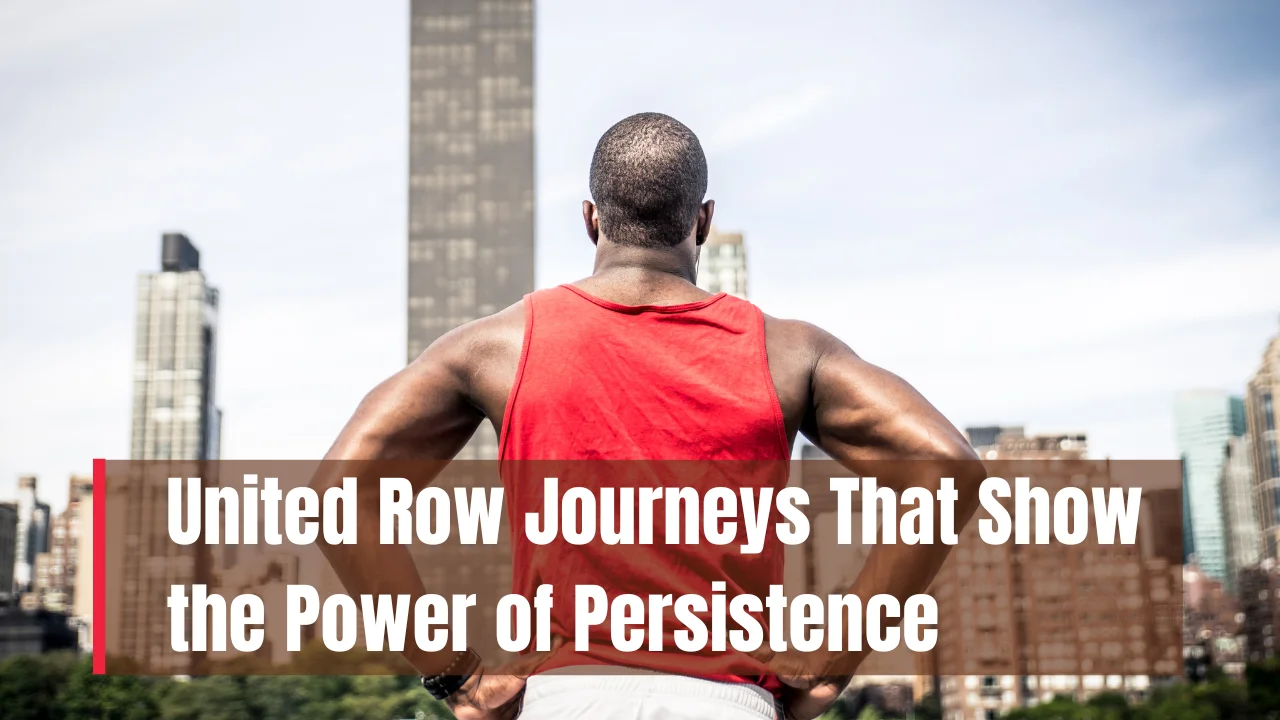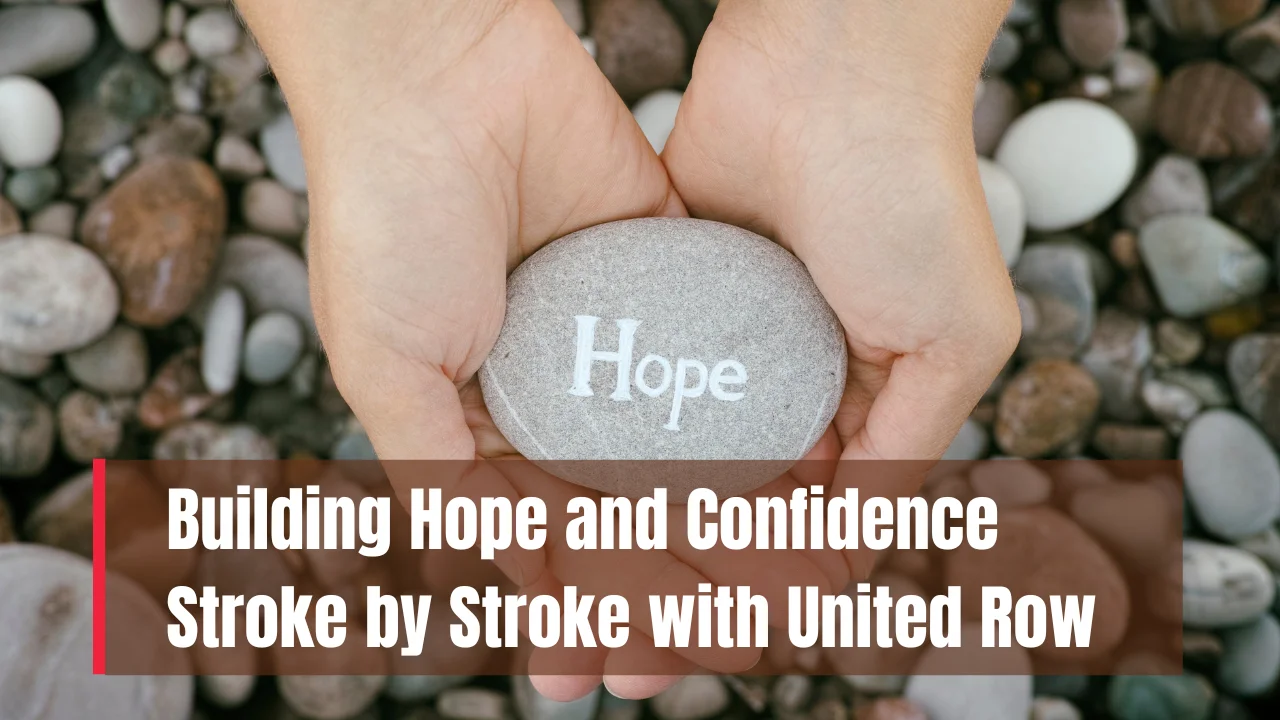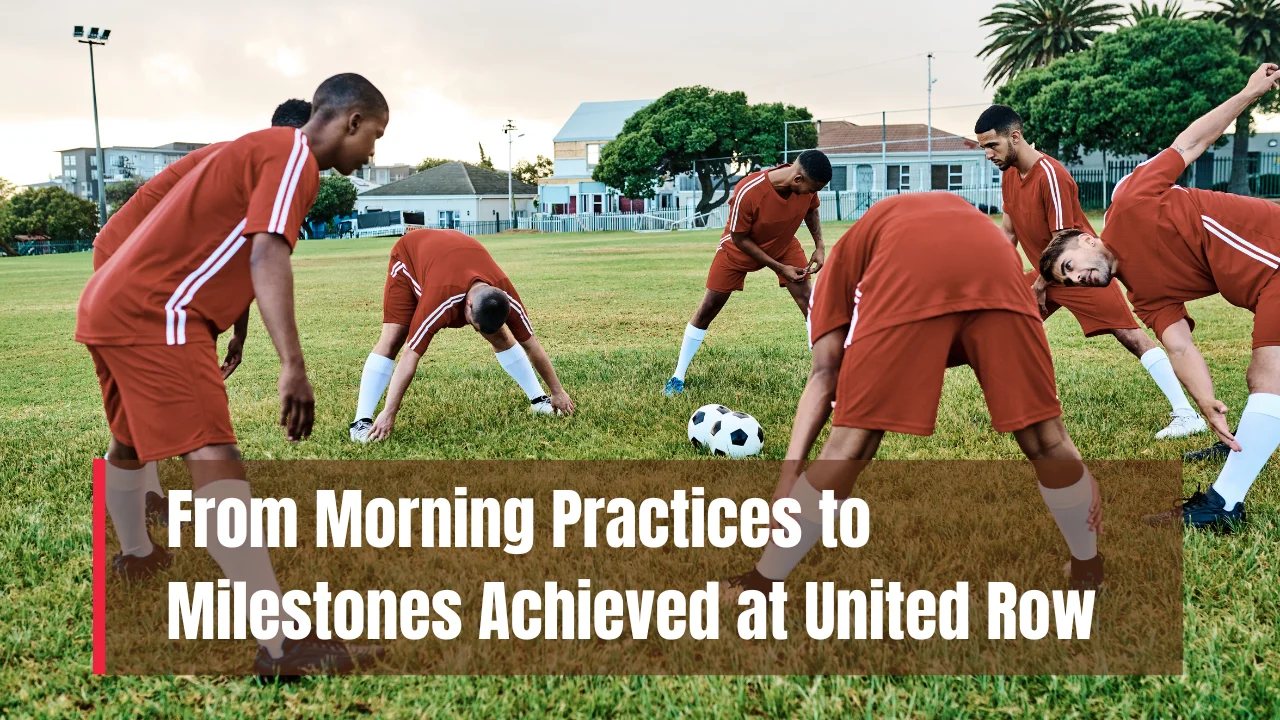Sleep Matters: Sleep is often the missing piece in athletic performance. Many rowers spend hours perfecting their strokes, building strength, and maintaining endurance, yet overlook the value of rest. Without proper recovery, even the hardest training sessions may not deliver their full benefits. Athletes who undervalue sleep risk slower progress, higher fatigue, and greater chances of injury.
This article will explore why sleep is just as crucial as physical training for United Row athletes. We’ll discuss how sleep fuels recovery, supports mental clarity, boosts endurance, and prevents burnout. By the end, you’ll see how incorporating rest into your training plan can maximize performance both in and out of competition.
Why Sleep Matters Just as Much as Training for United Row Athletes
For United Row athletes, balancing training and rest is key to peak performance. While workouts build physical ability, sleep ensures the body restores energy, repairs muscles, and sharpens focus. It acts as a natural recovery tool that strengthens both the body and the mind. Sleep also regulates hormones, keeps energy levels steady, and helps athletes adapt to training loads more effectively. Without enough rest, even the best-prepared athletes may struggle to perform. Recognizing sleep as equal to training is essential for long-term success in rowing and for maintaining both physical and mental health.
The Link Between Sleep and Performance
Every training session stresses the body, and recovery is where progress truly happens. For rowers, sleep allows muscles to heal, the nervous system to reset, and energy reserves to replenish. Research shows that athletes who prioritize rest have stronger endurance, sharper reflexes, and fewer injuries. When athletes neglect sleep, they risk slower reaction times, reduced strength output, and increased vulnerability to illness. For United Row athletes, performance gains depend on balancing time spent on the water with time spent sleeping.
How Sleep Fuels Muscle Recovery
Training creates microtears in muscle fibers, and recovery strengthens them. During deep sleep, growth hormones peak, which accelerates muscle repair and adaptation. Without these cycles of rest, athletes may face prolonged soreness, diminished stamina, and weaker performance during practice. For rowers, this can show up as slower stroke speed, reduced power, and overall fatigue. By ensuring 7–9 hours of sleep, athletes give their bodies the chance to rebuild and prepare for the next challenge.
Mental Focus and Sleep
Rowing demands concentration, rhythm, and split-second decision-making. A sharp mind helps athletes stay in sync with their crew and adapt quickly during races. Sleep strengthens memory, enhances focus, and improves reaction time. In contrast, lack of rest leads to mental fog, poor judgment, and reduced motivation. For United Row athletes, staying mentally alert can mean maintaining proper form, hitting the right pace, and responding to changing race conditions more effectively.
Sleep Boosts Endurance
Rowing is one of the most demanding endurance sports. Athletes rely on steady energy and stamina to maintain pace over long sessions. Sleep directly influences energy regulation by balancing glucose levels and supporting cardiovascular function. Rowers who sleep well can sustain intensity for longer periods, while those who don’t may experience early fatigue and inconsistent performance. In endurance-based sports like rowing, quality sleep is just as vital as training hours logged on the water.
Building Healthy Sleep Habits
Good sleep doesn’t happen by accident; it requires consistent routines. United Row athletes can improve recovery by sticking to regular bedtimes, limiting screen use before sleep, and creating a restful environment. Avoiding caffeine late in the day and practicing relaxation techniques like stretching or deep breathing can also improve rest. These small lifestyle changes add up, ensuring athletes enter training refreshed and ready to perform.
Two Key Reasons Sleep Matters for United Row Athletes
- Better Recovery: Quality sleep speeds up muscle healing, reduces fatigue, and strengthens the immune system.
- Stronger Mindset: Rested athletes stay motivated, focused, and mentally resilient in both training and competition.
Common Sleep Challenges for Athletes
Athletes often struggle with irregular schedules, late-night practices, and travel for competitions. Stress and overtraining can further disrupt rest, leading to inconsistent sleep quality. For rowers, this might mean waking up tired even after a full night in bed. Recognizing these barriers is the first step. Solutions like adjusting training loads, practicing mindfulness, and improving sleep hygiene can help restore balance. Addressing these challenges ensures athletes stay consistent in both performance and recovery.
Balancing Training and Rest
Training is essential, but without recovery, progress stalls. Overtraining without enough sleep can lead to injuries, burnout, and loss of motivation. For United Row athletes, rest is not a luxury but a necessity. Treating recovery days and sleep schedules with the same importance as practice plans helps athletes maintain steady growth, prevent setbacks, and achieve peak performance over time. The best results come from balancing hard work with restorative sleep.
FAQs
Why is sleep critical for athletes?
Sleep restores energy, repairs muscles, and sharpens focus, all of which are vital for performance.
How much sleep should United Row athletes get?
Most athletes benefit from 7–9 hours of consistent, quality sleep every night.
Does poor sleep affect rowing endurance?
Yes, inadequate rest lowers stamina, disrupts energy balance, and increases fatigue during long sessions.
What habits improve sleep quality for athletes?
Consistent bedtimes, reduced screen time, and a calm sleep environment support better rest.
Can rest days replace sleep?
No, rest days help recovery, but without quality sleep, the body cannot fully repair or adapt to training.
Final Thought
For United Row athletes, success comes from more than hours of training. Sleep is the foundation that fuels muscle recovery, mental clarity, and endurance. Ignoring it can limit growth, while prioritizing it can unlock new levels of performance. By treating rest as seriously as practice, athletes build stronger bodies and sharper minds. If this article resonated with you, share your thoughts in the comments and explore more insights on recovery, training, and athlete wellness.












